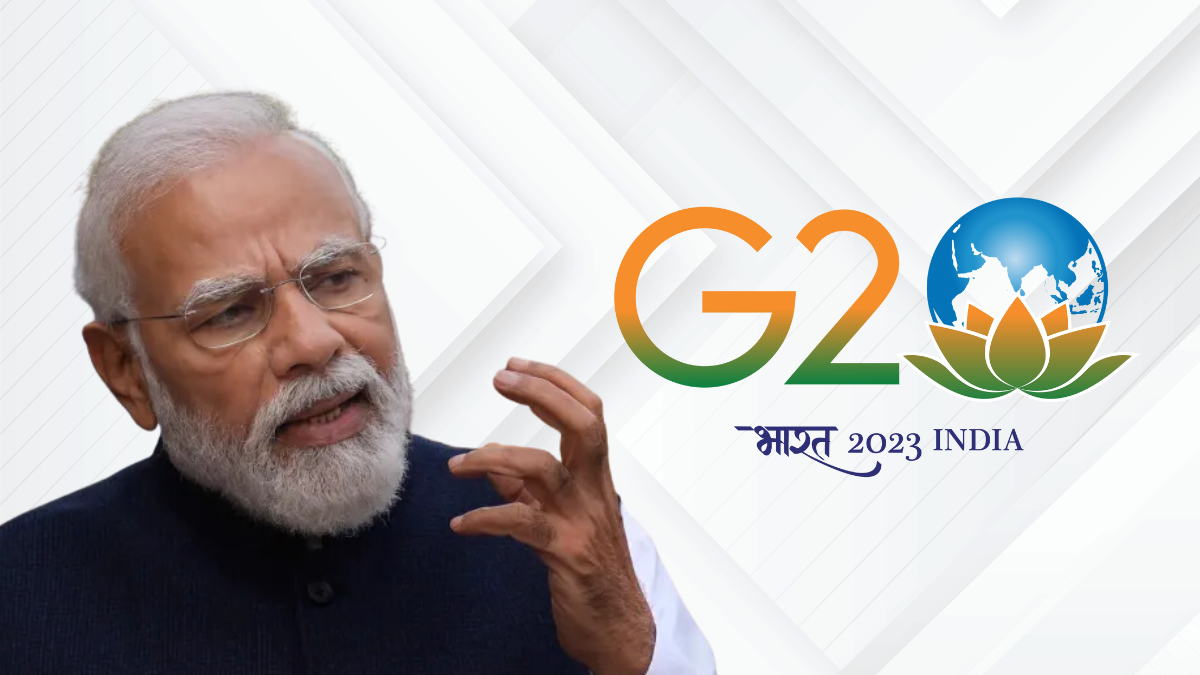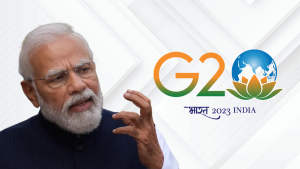Join Our Telegram channel to stay up to date on breaking news coverage
Indian Prime Minister Narendra Modi has called upon the international community to collaborate on formulating a comprehensive global regulatory framework for cryptocurrencies. This call was made during the annual Group of 20 (G20) summit.
In 1999, the Group of Twenty (G20) emerged as a coalition of twenty prominent global economies, aiming to foster dialogue between influential industrialized and developing nations regarding international economic and financial stability.
Since its inception, the G20 has developed its annual summit, introduced in 2008, into a significant platform for economic discussions and the exploration of critical worldwide concerns. This assembly of leaders has become a key player in shaping global financial conversations. G20 is comprised of 19 countries and Europe. Spain is added as a permanent guest.
With India assuming the presidency of the G20, the nation has spearheaded efforts to develop a coordinated strategy for overseeing cryptocurrencies.
During an interview with a local daily, Prime Minister Modi highlighted the inevitability of technological advancements and stressed the importance of embracing these changes rather than resisting them. “The focus should be on adoption, democratization, and a unified approach. At the same time, the rules, regulations, and framework around it should not belong to one country or a group of countries,” Modi asserted.
The Indian Prime Minister highlighted the necessity of a global consensus-based model for cryptocurrency regulation, drawing parallels with the aviation sector’s international laws. He argued that similar global rules and regulations could be established for the cryptocurrency industry to ensure stability and security.
Modi asserted that, over the past nine months, India’s G20 presidency has expanded the discourse on cryptocurrencies, moving beyond their impact on financial stability to encompass broader macroeconomic implications, particularly for emerging markets and developing economies. The G20 has achieved consensus on these matters, influencing standard-setting bodies accordingly. Through hosting seminars and discussions, India’s presidency has provided more profound insights into crypto assets.
Modi highlighted the proactive stance taken by India’s G20 presidency, stating, “We haven’t stopped ideating on how we should move ahead. We have also come up with tangible details on the way ahead and how quickly we need to move. So, our road map is detailed and action-oriented.”
Tangible Steps Toward Cryptocurrency Framework
On August 1st, India released a presidency note outlining its roadmap for establishing a worldwide crypto regulatory framework. This document aligns with recommendations from reputable international organizations such as the Financial Stability Board (FSB), the International Monetary Fund (IMF), and the Financial Action Task Force (FATF).
The presidency note introduces improvements to the current recommendations, focusing mainly on developing nations’ challenges. While the IMF is already considering the unique circumstances of developing economies when shaping its cryptocurrency regulations, India is advocating that the FSB adopt a similar approach.
The note also highlights the importance of increasing awareness about potential risks across various regions, particularly in countries with a significant adoption of cryptocurrencies.
The forthcoming Synthesis Paper, jointly prepared by the IMF and FSB, is scheduled for release at the end of August. This paper will present a comprehensive roadmap that the G20 will deliberate upon.
In July, the Financial Stability Board (FSB) introduced its guidelines for digital currencies, including stablecoins. These guidelines emphasize separating clients’ digital assets from the funds owned by a platform, ensuring clarity and avoiding potential conflicts of interest.
Regulators are encouraged to support collaboration and supervision across different countries. Additionally, those issuing stablecoins must obtain a license from a national authority in a specific jurisdiction before initiating their operations.
India’s Dual Stance
India’s advocacy for a global crypto framework continues despite its domestic regulatory landscape being characterized by complexity, lack of clarity, and high taxation. In April, Finance Minister Nirmala Sitharaman addressed the International Monetary Fund, stressing the need for comprehensive crypto regulations to curb illicit activities associated with cryptocurrencies.
She emphasized the necessity of technological regulation that remains ahead of the curve and operates uniformly across nations.
🔴 LIVE NOW: A panel discussion on the policy challenges and opportunities of #DigitalMoney to the international monetary system. #CBDC https://t.co/JznM8apoGt
— IMFLive (@IMFLive) April 18, 2022
The call for a global crypto framework comes as entrepreneurs within India have been pressing for clear crypto regulations for nearly four years. However, the Indian government introduced a contentious 30% crypto tax law without clarifying the nation’s future. This tax law has reportedly prompted numerous crypto startups and entrepreneurs to seek more favorable jurisdictions.
While concerns persist regarding the illicit use of cryptocurrencies, recent data from Chainalysis contradicts these notions. The report indicates that illegal activities involving cryptocurrencies have decreased to less than 1% of the total circulating supply.
Related Articles
- Best Crypto to Buy Now
- Shibarium Wallets Rise to 100k After SHIB Bridge Relaunch
- HashKey Exchange Launches Hong Kong’s First Licensed Retail Virtual Asset Exchange Platform
Best Wallet - Diversify Your Crypto Portfolio
- Easy to Use, Feature-Driven Crypto Wallet
- Get Early Access to Upcoming Token ICOs
- Multi-Chain, Multi-Wallet, Non-Custodial
- Now On App Store, Google Play
- Stake To Earn Native Token $BEST
- 250,000+ Monthly Active Users
Join Our Telegram channel to stay up to date on breaking news coverage


